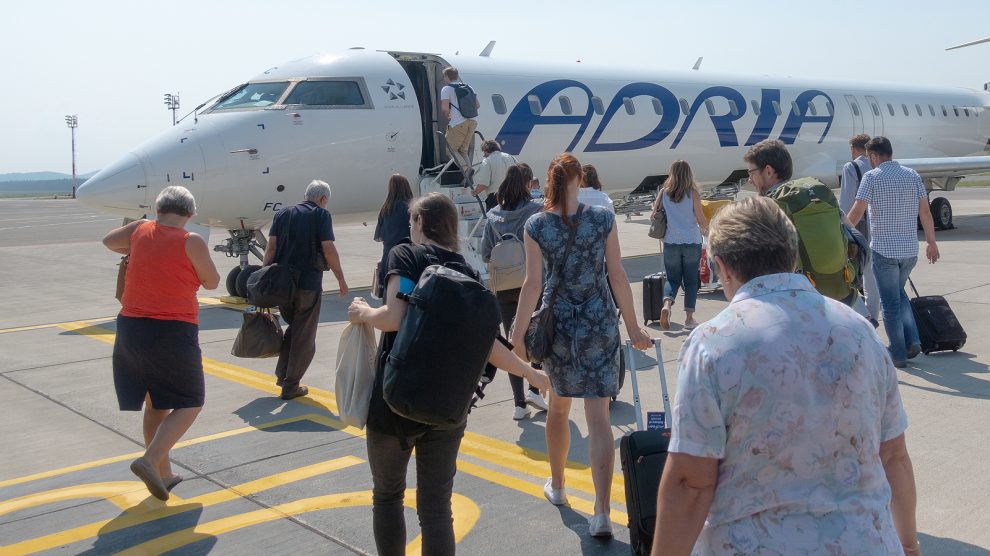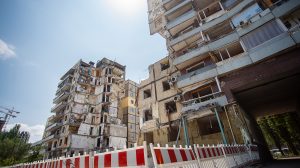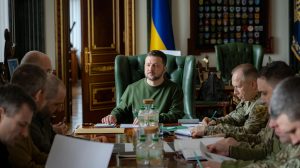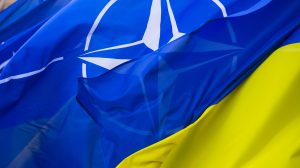Central Europe
The Slovenian Deputy Prime Minister and Minister for Economic Development and Technology, Zdravko Počivalšek, has said the government is looking at ways to replace former national carrier Adria Airways and improve the country’s air connectivity. It comes almost two years since Adria’s collapse in September 2019, which marked the start of a sharp decline in passenger numbers at Ljubljana Airport, which has been further exasperated by the coronavirus pandemic. “If we want to have better air connectivity in Slovenia, we will have to do something in this sector and find a way forward to enable progress, in cooperation with a private stakeholder. Currently, we do not have a national carrier, and air traffic is severely affected by the pandemic,” said Počivalšek.
Bulgarian prime minister-designate Plamen Nikolov of anti-elite There Is Such a People (ITN) party said on Tuesday he was optimistic he can lead a minority government although it remains unclear whether he can build sufficient support for it. ITN narrowly won July 11 parliamentary elections, the second this year, putting an end to nearly a decade of political dominance of centre-right former premier Boyko Borissov amid popular anger with widespread corruption. But with just 65 deputies in the 240-member parliament, the ITN party led by popular talk show host and singer Slavi Trifonov would need the support of other parties to form a government.
Hungary’s membership in the European Union may be assessed in a new light once the country becomes a net contributor to the bloc’s budget toward the end of the decade, Finance Minister Mihály Varga said this week. The comments, made by one of the most moderate voices in Prime Minister Viktor Orbán’s cabinet, have revived concerns that an increasingly bellicose relationship with the EU may eventually lead Hungary to leave the bloc. “If there was such a question in 2021, I’d be among those who’d vote yes,” to EU membership, Varga told ATV.hu news website in an interview published on Monday. “But by the end of the decade, when according to our calculations we’d become net payers in the EU, the question may be cast in a new perspective, especially if the attacks by Brussels over values become sustained.”
Poland’s Prime Minister Mateusz Morawiecki said this week he wants to reach “some kind of accord” with the European Union amid a standoff over the way Poland’s government has sought to discipline judges and other judicial changes. His comments, following similar remarks from President Andrzej Duda, seem to be preparing the ground for some changes to the way the right-wing government approaches changes to the justice system. Since the ruling party took power in 2015, it has overhauled the justice system in a way that has given the party new powers over the courts and appointment of judges. The changes have drawn strong criticism and warnings of sanctions from the EU, which considers the changes undemocratic.
A bipartisan group of US senators meanwhile, mostly made up of Democrats but also including the top Republican on the Senate Foreign Relations Committee, issued a joint statement on Wednesday expressing concern over the “troubling trajectory for Poland’s democracy”, warning that it could scare off US investment in the country. The statement comes just two weeks after the European Union slammed Poland (as well as Hungary) for eroding media freedoms in a rule-of-law report published on July 20. “The Polish government’s continued democratic backsliding, most recently through efforts designed to undermine independent media and one of the largest US investments in the country, is deeply concerning,” the senators said in their statement. The US investor that the senators refer to is Discovery, the owner of TVN, a channel which is often critical in its reporting of the Polish government.
Britain, Romania and Liberia told the United Nations Security Council on Tuesday that it was “highly likely” that Iran used one or more drones to carry out a deadly tanker attack last week off the coast of Oman. “This attack disrupted and posed a risk to the safety and security of international shipping and was a clear violation of international law,” the countries said in a letter to the 15-member council seen by news agency Reuters. “This act must be condemned by the international community.” Teheran has denied any involvement in Thursday’s attack on the Mercer Street – a Liberian-flagged, Japanese-owned petroleum product tanker managed by Israeli-owned Zodiac Maritime. Two crew members, a Briton and a Romanian, were killed.
Two passenger trains collided in the southwest of Czechia on Wednesday, killing three people and injuring dozens of passengers. Czech Railways said a local passenger train and an international high-speed train that was heading from Munich to the western Czech city of Plzen and the Czech capital of Prague were involved in the collision. Police said at least three people died in the crash, which occurred shortly after 8am in the town of Milavce. The victims included the the drivers of both engines and a female passenger, authorities said. Dozens of people were injured, five of them seriously, the Fire Rescue Service of the Plzen region said in a statement.
Croatia’s recently announced border monitoring mechanism, meant to provide for independent human rights monitoring of border operations, appears to fall short of the standards needed to ensure its effectiveness and success, eight human rights and humanitarian aid organisations said this week. Numerous nongovernmental groups, international organisations and the media have since 2016 documented ongoing, summary collective expulsions of migrants and asylum seekers and often abusive pushbacks by Croatia at its borders. The European Commission first called on Croatia to establish a border monitoring mechanism in 2018.

—
Eastern Europe
The trial of two leading Belarusian opposition figures began on Wednesday behind closed doors at a court in Minsk. Protest organiser Maria Kolesnikova and opposition lawyer Maxim Znak were charged last September for incitement to undermine national security. If found guilty they could each face up to 12 years in prison. Belarus was gripped by mass protests last year, triggered by an election widely believed to have been rigged in favour of Alexander Lukashenko. Street demonstrations continued for weeks after the disputed August 9 vote, which the EU and US rejected as neither free nor fair. The protests were often broken up brutally by police, and thousands of people were detained. Lukashenko, who has been in power since 1994, later cracked down massively on his opponents.
A Belarusian dissident who helped his countrymen flee persecution was found dead in a park on Tuesday in the Ukrainian capital of Kyiv, where police have launched a murder investigation. Vitaly Shishov, the head of the Kyiv-based Belarusian House in Ukraine (BDU) organisation, was reported missing by his partner on Monday after going for a run, police said. By Tuesday morning, the activist was found hanged in a forested area of a park near his Kyiv home. Ukrainian police opened a criminal case and said they would investigate whether Shishov’s death was a suicide or “premeditative murder meant to look like suicide.” The BDU helps fleeing and exiled Belarusians find accommodation, jobs and legal advice in Ukraine. In a statement on Tuesday, the BDU said Shishov had been “under surveillance” and that they had received warnings about possible threats prior to his death.
Ukraine has received 500,000 doses of Covid-19 vaccines from Denmark, Ukrainian President Volodymyr Zelensky said on Wednesday. “We’re grateful to our Denmark friends for their support in overcoming this global challenge,” Zelenskiy wrote on Twitter. Ukraine has lagged behind other European countries in vaccinating its population of 41 million people. So far, 2.1 million Ukrainian citizens have received two jabs as of July 4.
A member of Azerbaijan’s parliament has been arrested on charges that he beat a police officer, in what many in the country saw as an ironic twist to a long record of police abuse of citizens. Eldaniz Salimov, a member of parliament from the ruling New Azerbaijan Party, was taken into custody in a Baku court on August 3. The court ruled that Salimov would stay under arrest for three months while the case is being investigated. Salimov is accused of physically attacking a police officer on July 29 at a restaurant in the city of Khachmaz, which independent journalist Habib Muntezir reported belonged to a close relative of the lawmaker.
North East Europe
Lithuania has ordered its border guards to turn away, by force if needed, migrants attempting to enter the Baltic country, as a surge of Iraqis and others coming in from neighbouring Belarus has emerged as a major foreign policy issue. Lithuania says the migrant influx in the past months is an act of retaliation by Belarus’ authoritarian President Alexander Lukashenko to increased sanctions by the European Union toward his country over an air piracy incident. The Interior Ministry distributed a video shot from a helicopter as a proof that large groups of immigrants were being escorted to Lithuania’s EU border by vehicles belonging to Belarus border guards. Lithuania’s Interior Ministry said on Tuesday that at least three large migrant groups were stopped in thick woods in the border between the two countries, and Lithuanian border guards ordered them to return back to Belarus.
Three Cubans who took the desperate step of trying to cross one of Europe’s most sensitive border rivers on air beds now face deportation from Russia. They were caught trying to paddle across into Estonia, Russian border guards say. They are said to have told guards they were hoping to get to Spain, where one of them has a daughter living. Cubans only need their passports to visit Russia for tourism but cannot enter the EU legally without a visa. Tens of thousands of people have tried over the past 60 years to flee Communist Cuba but more usually leave the Caribbean island for the US, travelling by boat and ship, often at great personal risk.
South East Europe
Serbian prosecutors filed charges last Friday against 31 people, including members of a notorious soccer fan group, accusing them of murder, torture, kidnapping and drug trafficking, pro-government media reported. Most of them were arrested in February. Since then, Serbia’s populist leaders and media that support them have been publishing photos and footage of their alleged crimes. Those images included alleged decapitations and getting rid of bodies by grinding the remains in a machine. KRIK, a prominent Serbian independent investigative group, published the suspects’ testimonies after their arrests, in which they denied committing the crimes and saying some of them have met and served the interests of Serbia’s President Aleksandar Vučić and other government officials. Vučić and his Interior Minister Aleksandar Vulin have vehemently denied those accusations, claiming they are being orchestrated by Serbia’s opposition parties in order to trigger public unrest and take power by force.
The leaders of Serbia, North Macedonia, and Albania have moved forward on a regional border-control initiative – changing the name of the project from Little Schengen to Open Balkans. The new name was announced on July 29 after a meeting in Skopje between Serbian President Aleksandar Vučić, Albanian Prime Minister Edi Rama, and North Macedonia’s prime minister, Zoran Zaev. The Balkan leaders agreed at the meeting to abolish border controls between Serbia, North Macedonia, and Albania from January 1, 2023, Vucic said. Leaders of the three countries committed to creating the initiative in October 2019 – calling it Little Schengen after the European Union’s border-free zone.
Albania is repatriating five Albanian women and 14 children from Syria’s troubled Al Hol camp who were related to Albanians who joined Islamist extremist groups fighting in Syria and Iraq, the country’s prime minister said Saturday. Albanian Prime Minister Edi Rama and Interior Minister Bledi Cuci were in Beirut meeting with Lebanese Gen. Abass Ibrahim, who has played a key role in the repatriating efforts, together with intelligence services from other countries. “The good news is the 14 children and five women (have been taken out) from the hell camp,” said Rama. “I am here to take the children and women and turn them back to our homeland tomorrow.”
German politician Christian Schmidt took up the post of Bosnia’s international peace overseer on Monday after a hostile reception by Bosnian Serb leaders who want the Office of the High Representative (OHR) to be scrapped. Schmidt, a former government minister, replaced Austrian diplomat Valentin Inzko after 12 years as the international High Representative in Bosnia, whose office oversees the 1995 Dayton peace agreement. “It’s an honour for me to take this responsibility and serve the people of Bosnia-Herzegovina,” Schmidt said during the official takeover ceremony in the capital of Sarajevo. But Milorad Dodik, the Serb member of Bosnia’s tripartite presidency, said Schmidt was not welcome.
Central Asia
Troops from Russia and Uzbekistan began joint military drills on Monday near the Afghan border, amid fears in both countries that a worsening security situation in Afghanistan could spill over into Central Asia. Russia said 1,500 Russian and Uzbek troops would take part in the five-day exercises that began at the Termez military site in Uzbekistan, the TASS news agency reported. In a sign of how seriously Moscow views the potential threat from Afghanistan, it said it would send a much bigger military contingent to Tajikistan for separate trilateral exercises.
A court in northwestern Kazakhstan has sentenced an activist to two years of parole-like terms over ties to the banned Democratic Choice of Kazakhstan (DVK) movement amid an ongoing crackdown on support for that group and the associated Koshe (Street) party. The DVK is led from abroad by fugitive former banker Mukhtar Ablyazov, the former head of Kazakhstan’s BTA Bank and an outspoken critic of the Kazakh government. Judge Zhanas Quanyshev, in a court in the city of Aqtobe on August 4, also barred the convicted man, Asqar Qalasov, from using social networks for the duration of his sentence. A number of Kazakh activists have been convicted in recent years for their involvement in the activities of the DVK and the Koshe party and for participation in rallies organised by those groups.
Askar Akayev, a former president who has lived in exile in Russia since being overthrown in March 2005, caused widespread amazement on August 2 by flying into the Kyrgyz capital Bishkek to be met by representatives of the State Committee for National Security, or GKNB. Local media have reported that he is being questioned as part of ongoing investigations into the granting of a concession for the Kumtor goldmine to Canadian investors in the 1990s. “At the current time, Akayev is at the GKNB headquarters, where investigative activities are being pursued with his participation,” the agency said in a statement. This shock return may have less to do with Akayev, however, and more with the legal dispute that Kyrgyzstan initiated in the middle of May, when it availed itself of a freshly acquired right to temporarily wrest control of Kumtor out of the hands of Toronto-listed Centerra Gold.
Unlike many news and information platforms, Emerging Europe is free to read, and always will be. There is no paywall here. We are independent, not affiliated with nor representing any political party or business organisation. We want the very best for emerging Europe, nothing more, nothing less. Your support will help us continue to spread the word about this amazing region.
You can contribute here. Thank you.








Add Comment